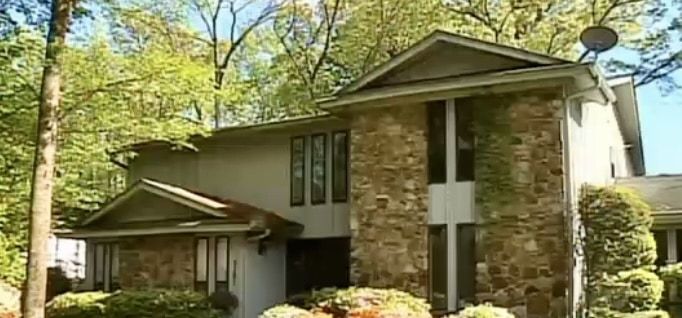
Property Deed Fraud
I’ve investigated this type of fraud in three different decades. It keeps getting worse. (pic courtesy WMCActionNews5.com, my investigation 2013)
Property deed fraud is when a scammer, typically through access to public records via your city or county register of deeds, forges what’s called a quit claim deed on a house or land parcel to make it appear as if he or she owns the property. The FBI calls it house-stealing, with multiple variations on the scheme, but to this day, the FBI insists it is rare.
It’s not.
Property deed fraud has been heating up for more than 20 years, and technology is making it easier. “Real estate title fraud is one of the most dangerous and fastest growing forms of identity theft occurring in Tennessee right now,” said Kevin Snider, consumer protection attorney and founder of your #WiseChoice law firm, Snider & Horner, PLLC. “The relative ease to complete it (online), along with the uncanny ability to do it without getting caught…It can occur out of the blue, have devastating consequences, and is very difficult and expensive to correct.”
I first investigated a case of property deed fraud in 1997, when I was with WREG NewsChannel 3. I busted Marcus Williams of Hickory Hill. Williams was fudging public deeds for rental properties all over Southeast Shelby County. He forged the deeds, then placed ads in the Commercial Appeal, offering properties he did not own for rent. I advocated for a woman who entered into a rental agreement with him on one of the properties. She paid him for a 12-month lease, and he gave her a key to the place (he used to legitimately rent that one. That’s how he had a key). About five months into the lease, the real owner of the property showed up at the front door. The renter answered. “Who are you?” asked the legitimate owner. “I rent this house,” she replied. “I own this house,” the owner retorted. She was forced to leave. I hunted Williams down and confronted him on camera. On the spot, he coughed up what she had pre-paid him. In cash. A year later, I caught him doing it again, this time in Raleigh. Scum bucket.
Speaking of Raleigh scum buckets, I busted Devitoe Farmer in 2013, stealing a half-dozen homes there through property deed fraud (my complete WMC Action News 5 investigation, including the video, is still online here). Until I got involved, Farmer succeeded by targeting government-foreclosed properties that had very little oversight. Then-Shelby County Register of Deeds Tom Leatherwood said Farmer would come into the register’s office and sign paperwork transferring the foreclosures from himself to himself, clouding the properties’ titles.
Leatherwood and his staff had their hands tied: Tennessee law forbids county registers and their staffs from requesting identification or proof of property ownership when someone attempts to quit claim a deed. “The law’s designed that way to keep bureaucrats from holding up folks just hours before closing on a home, based on a feeling that ‘something’s just not right,'” Leatherwood said back in 2013.
Leatherwood successfully lobbied the Tennessee General Assembly to make property deed fraud a crime in Tennessee. But legislators made it a Class A misdemeanor. It’s not even a felony. At most, a violator may face a year in jail.
“The Tennessee legislature needs to greatly improve the laws surrounding real estate fraud to prevent it from occurring and also substantially enhance the punishments when someone engages in this type of heinous behavior,” Snider said.
Current Shelby County Register of Deeds Shelandra Ford initiated a Property Fraud Alert Program. It’s a free program in which Shelby County property-owners can sign up by clicking here. “We will immediately notify you (by email) if a document is filed under your name or your business so that you can recognize and take action to stop fraudulent actions,” Ford said.
Snider added that every property owner should carry title insurance. “Everyone should obtain title insurance before purchasing a property to have coverage for title defects,” he said. “However, keep in mind that title insurance only protects you for issues or problems with the title that occurred prior to your purchase. It typically does not provide any type of protection for issues and problems that occur after your purchase or after you acquire your property.”
I asked Snider about those “title lock” services you hear advertised on the radio and TV. “A title lock service sounds like a great idea in that companies promise to monitor your title and alert you when something occurs,” he replied. “However, despite its name, nobody can prevent items being filed against your property whether they are legitimate or illegitimate. Moreover, you can monitor the title to your property anytime you desire without cost by simply logging onto your county register’s page.”
In short, what enables our access to our property records is what enables scammers’ access to our property records. Like monitoring your payment card statements, bank account statements and credit reports, you should also regularly check on your property records through your local register of deeds.
Copyright 2020 Wise Choices TM. All rights reserved.
andy wise, andy wise choices, andy wise florida, andy wise memphis, andy wise reporter, consumer investigator andy wise, consumer protection, fbi, property deed fraud, property deeds, quit claim deed, quit claim fraud, shelby county register, shelby county register of deeds, shelby county tennessee register of deeds, what is andy wise doing now, wise choices